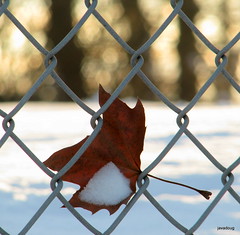 and introduces his world premiere of "Silent Spring," a work commissioned by the Pittsburgh Symphony Orchestra. According to Mr. Stucky, "Silent Spring" is a dark, dramatic and exiting piece. In order to compose the music, he used poetic imagery suggested by the titles written by Rachel Carson in her books. Deep, gripping and urgent emotions are what he intends for his tone poem, and "if all goes well, we will experience these emotions together."
and introduces his world premiere of "Silent Spring," a work commissioned by the Pittsburgh Symphony Orchestra. According to Mr. Stucky, "Silent Spring" is a dark, dramatic and exiting piece. In order to compose the music, he used poetic imagery suggested by the titles written by Rachel Carson in her books. Deep, gripping and urgent emotions are what he intends for his tone poem, and "if all goes well, we will experience these emotions together."I was impressed. The music instantly drew me into it's sphere of influence, and I was hooked for the entire duration of this seminal event. Low tones cascading upwards, transitioning abruptly, led to fluttering strings, ominously placed as if birds in migration. Sounds quite congruous, yet evoking dread, were crying out to be heard. Subdued quiet ensued and a bell tolls. An oboe laments and somber sounds from deep bass resound in peaceful yet asymmetrical furrows below the din. Again a bell tolls. Still silent, and subtle, intonation begets a rising lumbering echo permeating perhaps a forest floor. Towering monoliths, slowly moving, look below the heights. Strings build upward toward a plateau, beyond which are ocean's waves, splashing, breaking, accelerating; tides rip through currents, racing ever on to an eventual climax of capitulation. Dissonance appears, bells chime and sounds subside into a florid resonant surrender. Drums beat in humble silence, and at the end only the baton is moving, one final stroke and submission is complete: silence.
The audience around me also appreciate this wonderful tone poem by Mr. Stucky, as evidenced by the resounding applause, smiles and wonder.
Sibelius' Violin Concerto is one of my favorites.
 Like many of the best concertos, it has the form and flair that make it compelling. This concerto, however begins in a rather unconventional manner, as if a lone individual, in a vast forest, begins a beckoning call, asking the forest creatures to begin their morning murmurs. Nikolaj Znaider is this individual, and his violin warbles reverberating tones in combinations seemingly unattainable, yet deeply haunting and rich in timber. The final movement, with it's catchy beat, is the perfect finale for the showmanship of Mr Znaider, with a violin that seems too small for his stature. After the standing ovation, Mr Znaider plays a beautiful and simple encore.
Like many of the best concertos, it has the form and flair that make it compelling. This concerto, however begins in a rather unconventional manner, as if a lone individual, in a vast forest, begins a beckoning call, asking the forest creatures to begin their morning murmurs. Nikolaj Znaider is this individual, and his violin warbles reverberating tones in combinations seemingly unattainable, yet deeply haunting and rich in timber. The final movement, with it's catchy beat, is the perfect finale for the showmanship of Mr Znaider, with a violin that seems too small for his stature. After the standing ovation, Mr Znaider plays a beautiful and simple encore.As Manfred Honeck begins to conduct Tchaikovsky's Symphony No. 6, "Pathétique," I realize he has no score before him, only a baton -- it's obvious this symphony is in his memory and part of his repertoire, and the evident flourish displayed as he sweeps the orchestra into the spirited development betrays his union with the music. As I think of Tchaikovsky and the circumstances at the end of his life (Tchaikovsky conducted his B minor Symphony for the first time only a week before his death), I can't help but think of an enormous contradiction -- to me, this symphony is full of optimism, passion and furious jaunts marching with alacrity toward the wish to be alive, in love and full of joy. Yet the final movement jumps over that metaphor into a lament and ends, as does the first piece we heard this evening, by decelerating into an eventual state of silence, not at all the typical ending for Tchaikovsky or any composer. Yet it's beautiful.
The
 evening is a delight, as always. Indeed I learn to surrender to the florid resonant sounds of the Pittsburgh Symphony Orchestra. If I were afflicted with a passion of music and sound (and I am), and the talent to put those notes together into glorious harmony, forever recorded, then I would be even more in love with life and everything in it; certainly the very thought of being in love is reason enough to be optimistic; never yearn to posses the object of that love, but forever love from afar the beauty and the music.
evening is a delight, as always. Indeed I learn to surrender to the florid resonant sounds of the Pittsburgh Symphony Orchestra. If I were afflicted with a passion of music and sound (and I am), and the talent to put those notes together into glorious harmony, forever recorded, then I would be even more in love with life and everything in it; certainly the very thought of being in love is reason enough to be optimistic; never yearn to posses the object of that love, but forever love from afar the beauty and the music.





